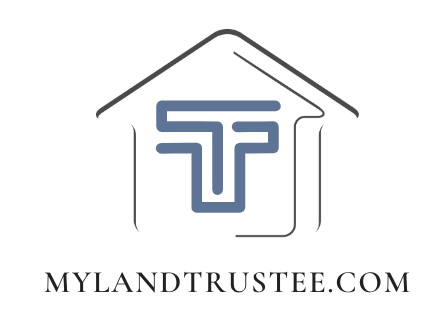|
|
|
|

Trust This.
By Joseph E. Seagle, Esq. ● Nov 15, 2024
Smart Brevity® count: 5.5 mins…1486 words
👋 Happy Friday! I flew in last night from Atlanta where I attended the Crisp Game Changers Summit. Got to meet and shake hands with John Morgan, Morgan Housel, Ludacris, Kat Cole, and Coach Nick Saban, to name a few. To say I’m exhausted is an understatement so forgive me if this newletter is lighter than usual.
Situation Awareness: FinCEN issued notices that certain business entities affected by Hurricanes Helene or Milton have an additional six months to file their BOI reports. Also, the IRS extended the deadlines to file tax returns for the same reason.
|
|
1 big thing: Assumable debt can help save commercial real estate markets

In the current high-interest-rate environment, assumable debt is gaining traction as a strategic tool to invigorate the commercial real estate (CRE) market. Assumable mortgages allow buyers to take over existing loans with favorable terms, offering a pathway to mitigate the challenges posed by elevated borrowing costs.
Why It Matters: The Federal Reserve’s rate hikes have led to a 7% decline in CRE sales volume in Q3 2024 compared to Q2, as reported by First American. This downturn has prompted industry stakeholders to seek innovative financing solutions to facilitate transactions.
Key Dynamics:
-
Interest Rate Advantage: Assumable loans are particularly attractive when existing loan rates are lower than current market rates. Buyers benefit from reduced debt payments, and sellers can enhance property appeal by offering assumable financing.
-
Lender Constraints: Despite their benefits, most CRE loans lack assumable clauses due to lender risk assessments. Lenders typically require thorough due diligence and may not approve the transfer of debt to a new borrower without a comprehensive evaluation of their financial standing. (CommLoan)
Assumption Process:
Assuming a commercial mortgage involves several critical steps:
-
Lender Approval: The buyer must obtain the lender’s consent to assume the existing loan. This process includes a detailed assessment of the buyer’s creditworthiness and financial stability. (CommLoan)
-
Due Diligence: Both parties engage in thorough due diligence to ensure the terms of the existing loan align with the buyer’s financial objectives.
-
Legal Documentation: The transaction requires precise legal documentation to formalize the transfer of debt obligations from the seller to the buyer.
Historical Context:
-
Historically, the prevalence of assumable mortgages in the CRE sector has fluctuated based on economic conditions.
-
During periods of high interest rates, such as the early 1980s, assumable loans became more common as a means to facilitate property sales.
-
In contrast, during times of low interest rates, the incentive to assume existing debt diminishes, leading to a decline in their usage.
Current Trends:
-
Recent data indicates a resurgence in the use of assumable debt.
-
Assumable debt accounted for 2% of all CRE sales in the 12 months ending in Q3 2024, doubling from 0.8% in the previous year.
-
This trend suggests a growing recognition of assumable mortgages as a viable solution in the current economic climate.
Looking Ahead:
The bottom line: As the CRE market navigates the challenges of high borrowing costs, assumable debt offers a strategic avenue to facilitate transactions. However, the complexity of the assumption process and the necessity of lender approval underscore the importance of thorough due diligence and professional guidance.
For real estate entrepreneurs and professionals, understanding the intricacies of assumable mortgages and staying attuned to market trends will be crucial in leveraging this financing mechanism to drive growth and recovery in the CRE sector.
|
|
2. Fannie and Freddie tighten insurance requirements

Fannie Mae and Freddie Mac have tightened enforcement on their long-standing requirement for replacement cost value (RCV) insurance on mortgaged properties.
-
This ensures that homes are insured for their full replacement cost instead of their depreciated value.
-
This policy is designed to safeguard homeowners from significant out-of-pocket repair expenses after disasters.
Why it matters: As housing affordability becomes an increasing concern in the U.S., the stricter enforcement of RCV requirements could exacerbate the financial strain on buyers.
-
Unlike ACV policies, RCV insurance typically results in higher premiums, raising the cost of homeownership.
-
Although the RCV requirement has not changed, Fannie Mae and Freddie Mac’s recent communications have emphasized the need for sufficient coverage to protect homeowners, lenders, and taxpayers as natural disasters become more frequent.
The latest changes: Both Fannie Mae and Freddie Mac issued bulletins earlier in 2024, clarifying the importance of obtaining RCV insurance on mortgaged properties. In May 2024, they announced a temporary reprieve from enforcement during operational reviews while they engaged with the industry to explore solutions for concerns raised by sellers and servicers regarding compliance.
For real estate investors: These insurance changes impact real estate investors looking to sell properties.
-
Buyers who need financing backed by Fannie Mae or Freddie Mac may struggle with higher insurance costs, shrinking the pool of eligible buyers.
-
If prospective homeowners find the cost of insurance too high, it could result in fewer completed transactions, particularly in lower-income segments, where affordability is strained.
-
Investors need to account for this additional financial burden during the sale process, particularly when targeting buyers with mortgage-backed financing.
For REALTORS®: REALTORS® representing buyers relying on GSE financing may face challenges in closing deals.
-
Higher insurance premiums could push monthly costs beyond what some buyers can afford, making properties less accessible.
-
REALTORS® must now help buyers navigate these additional costs and find insurance policies that meet GSE requirements, all while maintaining affordability.
What’s next: While Fannie Mae and Freddie Mac do not cite noncompliance findings during operational reviews, they have not changed the RCV requirements. Real estate professionals should prepare for possible stricter enforcement in the future, which may further strain housing affordability for buyers and sellers alike.
|
|

This week, I sat down with Gregory Emmer of EquityMax, a family-owned hard money lender to discuss the tips, tactics, nuts, and bolts of hard money lending for such lenders and their real estate entrepreneur borrowers.
Listen in or watch on your favorite streaming platform.
|
|
3. Catch up fast

-
Why is the average 30-year fixed mortgage rate continuing to rise? National Association of Home Builders News
-
NAR sees sunny economic skies on the horizon. But MBA? Not so much. HousingWire
-
And Logan Mohthashami says, “It depends.” HousingWire podcast
-
At least home tours and mortgage locks are bouncing back a little bit. Redfin
-
Richard Clarida on what comes next for (from?) the Fed. Bloomberg (gift link good for 7 days)
|
|
4. Closing Thought: Overcoming Impostor Syndrome: A Guide for Entrepreneurs

For over 50 years, these coveted Mary Kay pink Cadillacs are still a prize for their most successful consultants. I saw this brand new pink XT5 Monday on the showroom floor awaiting delivery to a winner. How do you reward your company’s winners?
Impostor syndrome—the persistent feeling of being a fraud despite evident success—can silently undermine even the most accomplished entrepreneurs.
Why it matters: Left unchecked, impostor syndrome can stifle innovation, hinder growth, and prevent you from seizing opportunities critical to your business’s success.
Background: Coined in 1978 by psychologists Pauline Clance and Suzanne Imes, impostor syndrome describes high-achieving individuals who struggle to internalize their accomplishments.
-
The origins: Clance and Imes initially studied high-achieving women who felt undeserving of their success, attributing it to luck rather than skill.
-
Evolution of the term: Over time, research has shown that impostor syndrome affects people across genders, ages, and professional backgrounds.
Who experiences it: While anyone can suffer from impostor syndrome, it’s particularly prevalent among entrepreneurs and leaders who are constantly pushing boundaries.
-
High achievers: Those who set lofty goals may feel they haven’t earned their success.
-
Minority groups: Underrepresented entrepreneurs might feel additional pressure to prove themselves.
-
New leaders: Stepping into unfamiliar roles can trigger self-doubt.
Recognizing it in yourself: Self-awareness is the first step to overcoming impostor syndrome.
Common signs:
-
Perfectionism: Setting unrealistically high standards and feeling disappointed when they’re not met.
-
Attributing success to external factors: Crediting luck or help from others rather than your own abilities.
-
Fear of failure: Avoiding new challenges due to fear of not meeting expectations.
-
Overworking: Putting in excessive effort to prevent others from discovering your “lack” of ability.
How to get past it:
-
Acknowledge your feelings: Recognize that self-doubt is a common experience and doesn’t reflect reality.
-
Document achievements: Keep a record of your successes and positive feedback to reinforce your self-worth.
-
Reframe negative thoughts: Challenge self-defeating beliefs by focusing on facts over feelings.
-
Seek support: Share your experiences with mentors, peers, or a coach who can provide perspective.
-
Embrace growth: View challenges as opportunities to learn rather than as threats to your competence.
The bottom line: Overcoming impostor syndrome is crucial for unlocking your full potential as an entrepreneur. By recognizing and addressing these feelings, you can lead with confidence and drive your business toward greater success.
|
|
|
We hope you found this helpful — any feedback is appreciated and can be shared by hitting reply or using the feedback feature below.
-
Was this email forwarded to you? Subscribe here.
-
Have an idea or issue to share? Email us.
-
Connect with us using your preferred social media and website links for MyLandTrustee and Aspire Legal Solutions.
-
Our mailing address: PO Box 547945, Orlando, FL 32854-7945
-
Our physical address: 1901 West Colonial Drive, First Floor, Orlando, FL 32804
Be on the lookout for our next issue! 👋
|
|
|
|
Feedback
Please share your thoughts on this edition.
Was this edition useful?
 

Your responses are anonymous
|
|
|
Powered by

|
|
|














